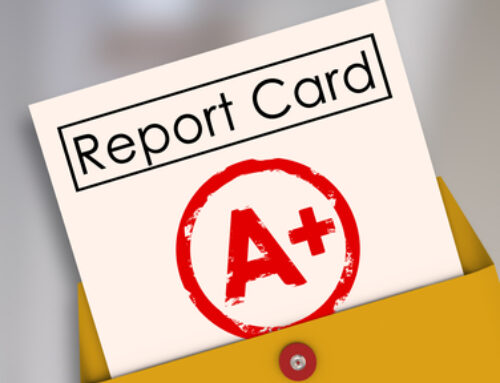High school students share information at school and online. Parents swap stories in the carpool lane and during backyard bar-b-ques. But when it comes to college admissions, can you believe everything you hear? During a recent webinar, admissions officers from seven different colleges addressed and corrected some common misconceptions.
1. Admissions essays aren’t important. Wrong!
Admissions officers read hundreds of essays. They can tell if you wrote your essay right before submitting it. They’ll know if you forgot to proofread. And, they’ll definitely notice if you didn’t answer the question. (This is one we as consultants frequently see — a student writes a beautiful essay but it doesn’t address the prompt.) Take the time to write a thoughtful, responsive essay focused on you. Be sure to proofread, checking for spelling, punctuation and grammatical errors. When it comes to those supplemental essays, the aforementioned admissions officers said the “why us” essay is vitally important. This is your chance to show you’ve researched the college and to demonstrate why you’d be a great addition to the campus. For more on the “why us” essay, see this blog post.
2. The longer your activities list, the better. Not so fast!
It’s obvious when students join a bunch of clubs their senior year so that they’ll have activities to put on their applications. Additionally, participating in so many activities that you don’t have time to be involved in a meaningful way is not what colleges want to see. During the webinar, college admissions officers said, “Be intentional. Choose activities that genuinely interest you and will serve as an opportunity to immerse yourself and create change.” When you fill out the activities section on your application, try to use words like “organizing,” “coordinating,” and “planning.” And remember, admissions officers don’t know all the acronyms. If you’re the Vice President of your school’s Outdoor Adventure Club, don’t only refer to it as “OAC.” Finally, when it comes to extracurriculars, if you can’t list all of them in the Activities Section, take advantage of the Additional Information section or consider uploading a resume, portfolio or YouTube link if given the option to do so.
3. I have great test scores, stellar grades, and impressive extracurriculars, so of course I’ll get in! It’s more complicated than that.
Colleges are admitting a class, not just individual students. They may need different puzzle pieces to complete the whole picture. In other words, they may be looking for students who meet a particular institutional priority, i.e., those with a specific intended major, students from a certain part of the country, or those who can be on an athletic team. Don’t let this intimidate you, because there’s a “right fit” for you. In fact, there’s more than one right fit. Work with your school counselor or college consultant to discover all of the schools that fit you academically, socially and financially. Finally, do your research and let colleges know what you can bring to their campus. (Again, one way to do this is in the “why us” essay.)
4. Average grades in difficult classes are better than As in easy classes. Not necessarily.
While colleges definitely want to see rigor (did you take the most challenging classes offered at your high school?), selective schools especially don’t like to see grades below a B. If you’re struggling in several classes, that’s not a plus. Unless you can keep your grades high, consider reducing rigor in some of your courses. For example, if AP History is proving too challenging, see if you can take an honors history class instead.
If you’d like to learn about more myths of college admissions, you can watch the webinar referenced above here.






